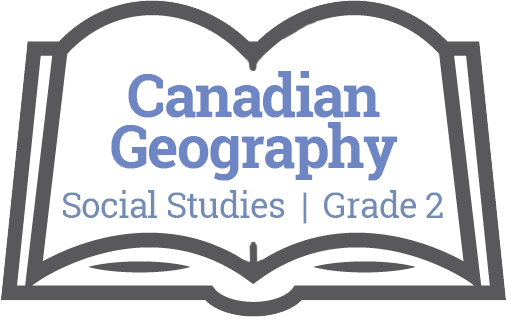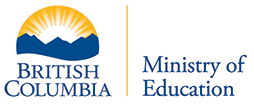
Unit Plan: Canadian Geography
Social Studies / Grade 2

Big Ideas
Canada is made up of many diverse regions and communities.
Concepts:
- Diversity
- Communities
- Climate
Essential Questions
Students will keep considering…
- What would it be like if all of Canada looked the same?
- What if the climate was same everywhere in Canada?
- What types of environmental challenges do people face in different communities (e.g., natural disasters, climate change, lack of natural resources)?
Evaluative Criteria
Teachers should consider how summative assessments should be based on clear criteria and include a variety of ways for students to show demonstrate their learning
- Quiz on Canadian regions and where they are on a map
Monitoring Progress
Teacher will monitor progress:
Teachers can monitor progress through ongoing formative assessment including but not limited to:
- Short, quick quizzes and review discussions on various regions in Canada
- Short, quick quizzes and review discussion on climate areas of Canada
Resources
WEBSITES
OTHER
- Atlas/Map of Canada
- Photos of various regions of Canada
- Aboriginal Success Teacher
- Blank Maps of Canada
Reflection
Teacher Reflection
- What aspects of the unit went well
- What did students struggle with
- What did you struggle with?
- What would you add or revise the next time you taught this unit?
- Were there any unintended outcomes?
- Were students engaged?
Downloads
Stage 1 – Desired Results
Big Ideas
Canada is made up of many diverse regions and communities.
Concepts:
- Diversity
- Communities
- Climate
Transfer Goals
Students will be able to independently use their learning to…
- Understand that Canada is diverse in many different ways.
Meaning
Students will understand that…
- Canada has a lot of physically different regions. (Canada looks different in different places.)
- Canada’s communities are connected to their physical regions and climate. (The way the land looks affects the people who live there. The climate affects how they live.)
Students will keep considering…
- What would it be like if all of Canada looked the same?
- What if the climate was same everywhere in Canada?
- What types of environmental challenges do people face in different communities (e.g., natural disasters, climate change, lack of natural resources)?
Acquisition
Students will be skilled at…
- Use Social Studies inquiry processes and skills to ask questions; gather, interpret, and analyze ideas; and communicate findings and decisions.
- Explain why people, events, or places are significant to various individuals and groups.
CONTENT
Students will know…
- Diverse characteristics of communities and cultures in Canada and around the world, including at least one Canadian First Peoples community and culture.
- How people’s needs and wants are met in communities.
- Relationships between people and the environment in different communities.
- Diverse features of the environment in other parts of Canada and the world.
Which Core Competencies will be integrated into the unit?
Communication
- Connect and engage with others (to share and develop ideas)
- Acquire, interpret and present information (includes inquiries)
- Explain/recount and react on experiences and accomplishments
Critical and Creative Thinking
- Question and investigate
First People's Principles of Learning
The unit will make connections with:

The following resources are made available through the British Columbia Ministry of Education. For more information, please visit BC’s New Curriculum.
Big Ideas
The Big Ideas consist of generalizations and principles and the key concepts important in an area of learning. The Big Ideas represent what students will understand at the completion of the curriculum for their grade. They are intended to endure beyond a single grade and contribute to future understanding.
Core Competencies
 Communications Competency
Communications Competency
The set of abilities that students use to impart and exchange information, experiences and ideas, to explore the world around them, and to understand and effectively engage in the use of digital media
 Thinking Competency
Thinking Competency
The knowledge, skills and processes we associate with intellectual development
 Social Competency
Social Competency
The set of abilities that relate to students’ identity in the world, both as individuals and as members of their community and society
Curricular Competencies & Content
Curricular Competencies are the skills, strategies, and processes that students develop over time. They reflect the “Do” in the Know-Do-Understand model of curriculum. The Curricular Competencies are built on the thinking, communicating, and personal and social competencies relevant to disciplines that make up an area of learning.
Additional Resources
First People's Principles of Learning
To read more about First People’s Principles of Learning, please click here.
For classroom resources, please visit the First Nations Education Steering Committee.
